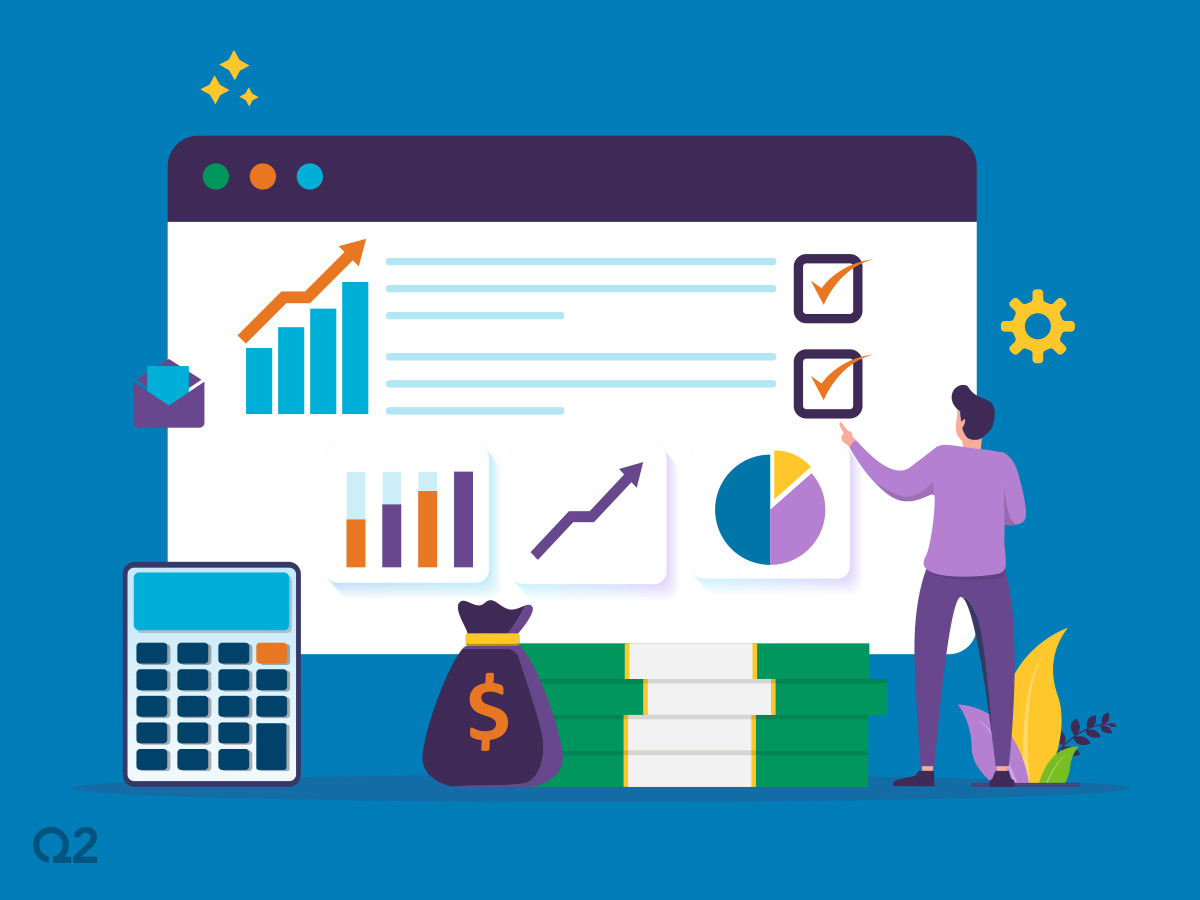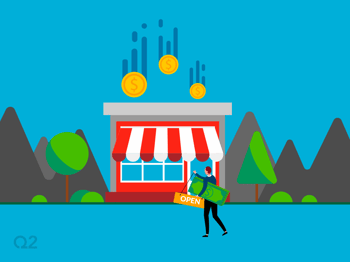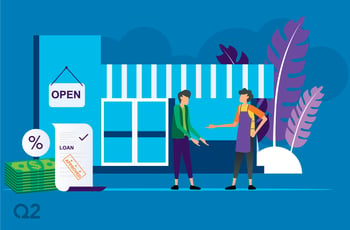By Taylor Adkins, VP of Product
Because of its time-bound nature, many lenders are hesitant to invest in a technology solution for the Paycheck Protection Program (PPP). But what if the time and energy spent on implementing a PPP solution—and the technology itself— could be used for other lending products and processes?
That’s just the thinking that has convinced several Q2 customers wrestling with whether to handle the third wave of PPP manually or digitally. From our experience working with those customers, here are a few ways to create long-term value out of near-term PPP efforts:
The loan origination system (LOS) you implement may be easily extended across more conventional loan products.
Implementing an LOS is hard work, but the urgency surrounding PPP has forced vendors to streamline this process so they can get PPP solutions in place more quickly. A modern, flexible LOS should be easily extendable—so the PPP solution you stand up in four or five days can give you a substantial head start in putting a comprehensive new lending technology in place.
Key aspects of your PPP solution may give you a lift in other areas, too. For example, if your PPP solution includes a customer portal, it can likely be used as a secure, two-way communication channel that replaces emails, faxes, and paper form submissions for other loan categories.
You can use your PPP solution for other SBA programs.
PPP has driven many financial institutions to become SBA lenders for the first time. With an SBA relationship established and a technology solution in place to support SBA loans, the barrier to becoming a longer-term SBA lender is reduced tremendously. Your PPP technology can make it easy to extend your participation in other SBA programs, with very little additional configuration in most cases. And we expect that as a result of PPP, the perception of SBA loans will improve substantially moving forward, creating even higher demand.
A good PPP experience sets the table for expanding business banking relationships.
PPP has created a double-edged sword for participating lenders: those that were able to provide timely, easy-to-get relief created a valuable experience for borrowers; those that weren’t able to take applications digitally or process them in a timely fashion may have taken a reputational hit that will prove difficult to overcome.
The combination of these factors means that if you find yourself in the first category, you likely loaned to first-time customers via PPP who now have an immensely positive perception of your brand. It also means that there are likely to be more small businesses—an already notoriously underserved market—on the prowl for a new primary banking relationship. From the Q2 customers we’ve spoken with, simple outreach to first-time PPP borrowers can yield meaningful opportunities to expand those relationships.
The lessons learned by your lending staff can future-proof you for other digital initiatives.
While the world is anxiously awaiting the end of COVID-19, there’s no question FI staff learned long-lasting lessons while participating in PPP. Putting a new technology in the ground in a matter of days isn’t always an easy feat, but the benefit is that their staff members now know how to do it.
On top of that, automated lending solutions relieve employees of tireless paperwork, long nights, uncertain outcomes, and high stress. Technology that can handle loan guidelines and requirements (which often changed in real-time for PPP loans) take an immense burden off of lending teams. And ultimately, lenders can flat-out do more loans with less effort when using digital lending and borrowing technology: in some cases, we saw an 877% increase in the number of loans a single lender was able to process by using a digital solution for PPP’s second round versus doing the first round manually.
The hard-earned lessons from PPP will help FIs and their employees become more agile and proactive well beyond COVID-19. We believe the appetite for lenders to apply these lessons across their lending products will be stronger than ever, and we know for a fact that borrowers’ appetite for a streamlined experience will skyrocket.
At the end of the day, while PPP may not continue forever, there will absolutely be some permanence to COVID-19’s impact on businesses’ (and consumers’) behaviors—particularly the desire to apply for loans digitally and seamlessly. In fact, 84% of consumers say they expect to retain the digital habits they’ve formed during the COVID-19 pandemic into the post-pandemic economy.
For many lenders, PPP participation has been a dress rehearsal for more comprehensive digitalization of the entire lending process. Through PPP, lenders have streamlined systems, mitigated risk and fraud, created awesome borrower experiences, and seen the tremendous benefits that a digital system can bring for both borrower and lender.
To learn more about our expert-led PPP solution and what it can do for you, visit http://learn.q2.com/ppp.




